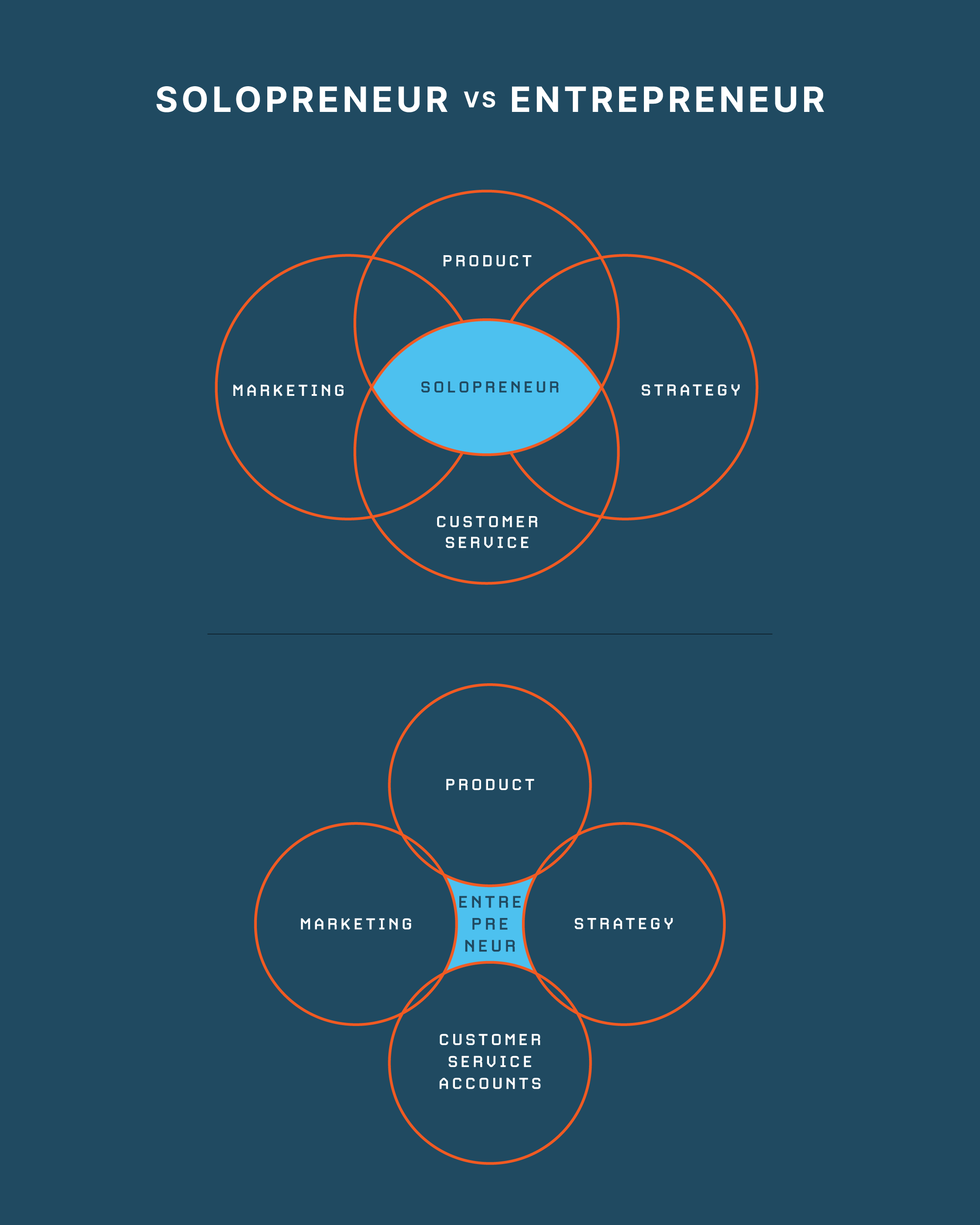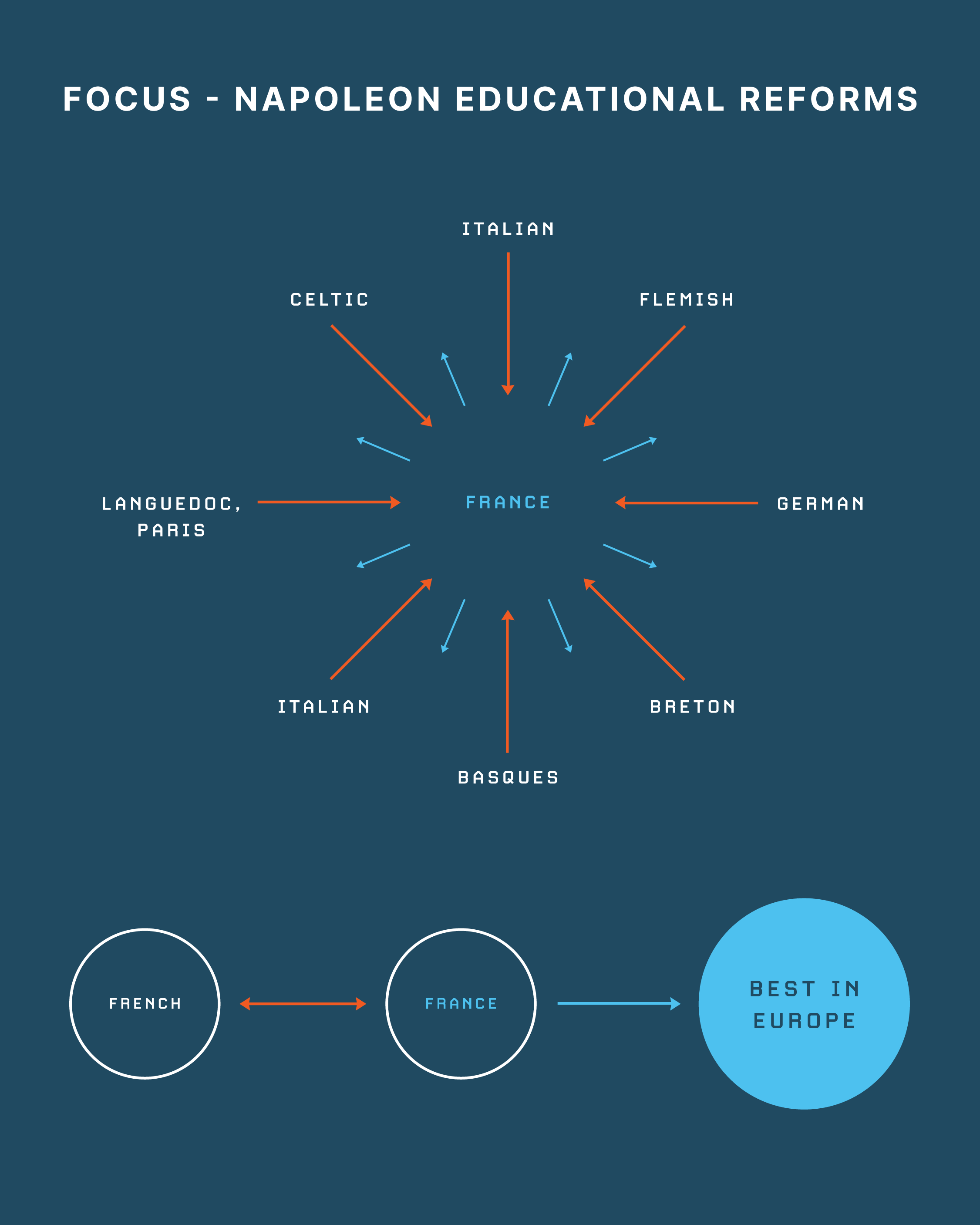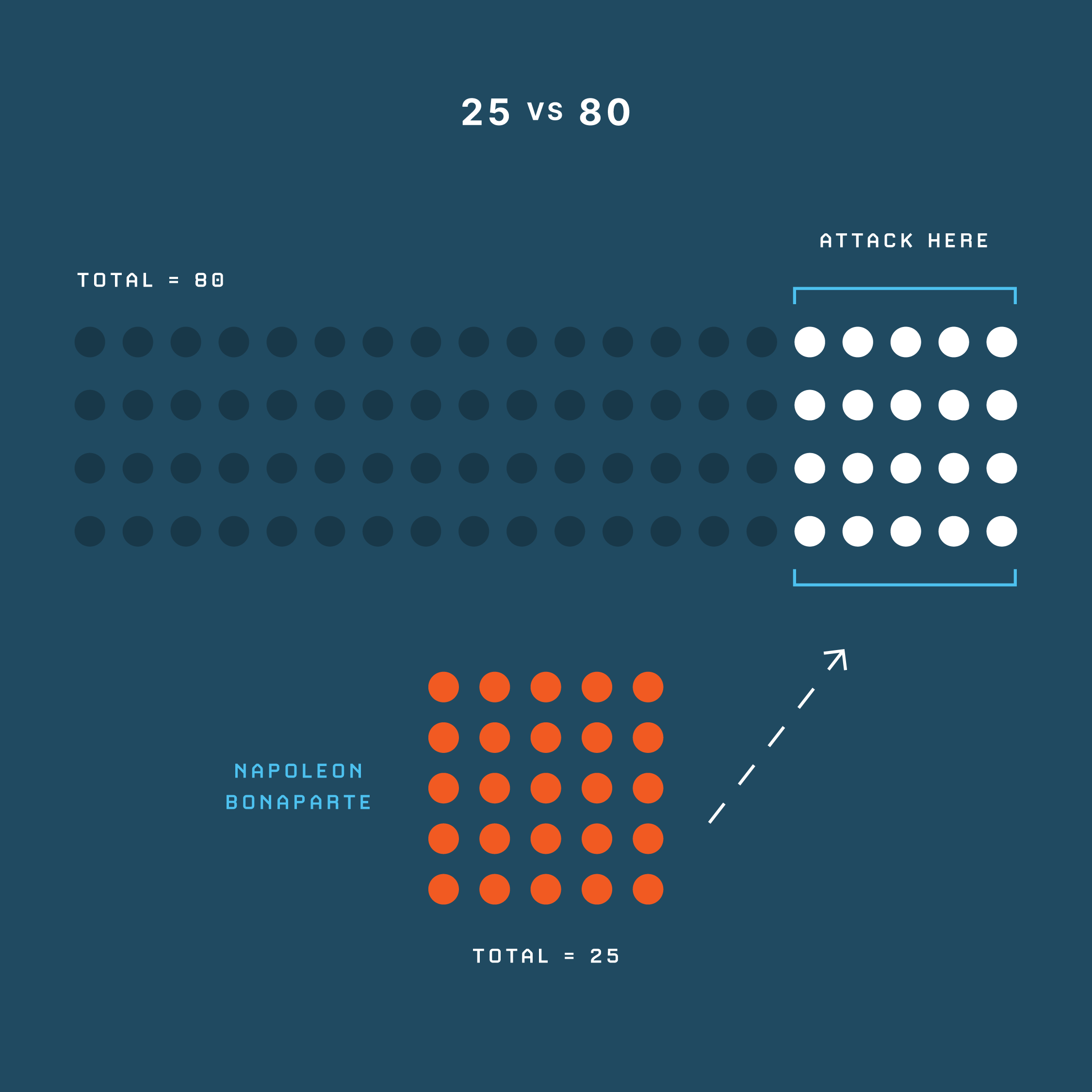The astonishingly simple reason entrepreneurs fail and miss out on building an anti-fragile business
…..they don’t have the solopreneur mindset!
Less than ⅓ of roman emperors died of old age. Most died in battle. These men led from the front and would never ask another soldier to do anything they wouldn’t do themselves.
While we don’t live in the age of constant wars, I believe we have funneled the desire to grow and conquer through business, sports and politics.
Entrepreneurship today is a stark contrast to how great historical leaders built and led their men.
Today’s entrepreneurs think an idea and ambition is enough.
Most businesses fail. However, startups founded by owners who haven’t developed the solopreneur mindset? I’d say, doomed to fail, full stop.
An unbearable volume of business advice comes from wannabe silicon valley unicorn breeders. It’s the main culprit behind destructive business strategy.
Some facts you need to know:
There were 5.6 million micro-businesses in the UK as of 2019, accounting for 96% of all businesses.
Approximately 92% of U.S. businesses are microbusinesses.
The danger is that microbusiness owners are taking advice from funded CEO’s who have never built anything without burning through $10,000 dph (dollars per hour).
They sold a good idea to investors, that’s it. You’re being duped by these kinds of people.
I love Naval’s advice. However, his viewpoint of throwing something away if it costs him more time than his “hourly rate” is the exact reason entrepreneurs starting out think they are “too great” to do the base work.
In essence: don’t be a twat
Naval’s millionaire mindset is great for him, not so great for you.
The term solopreneur isn’t defined in the dictionary, but here’s the first result from Google:
Solopreneur definition: “a person who sets up and runs a business on their own.”
My Version: “a person who sets up and creates a business by doing and learning. Not hiring and firing. A solopreneur will do the work and get involved in all aspects of the work, before offloading tasks.”
Okay so what does having a “solopreneur mindset” mean?
Most people want to start a business for future financial freedom. However, doing everything yourself all the time is not the solution. So, what is?
You must get comfortable working in all areas of your business. You must become an omnivorous reader of information about your business. You must understand your business from as many angles as possible. By doing this, it will help you develop a better strategy, improve your focus, and invoke inspirational leadership.
The leadership of old which will come up often in this essay, especially that of Napoleon Bonaparte.

Shown above is the difference between an entrepreneur and solopreneur.
While both people are at the core of the business, the solopreneur is actually working and learning within each segment, while the entrepreneur is happy to keep their distance.
What Never To Do With Strategy
Dear big boy entrepreneurs, being ambitious is not a strategy.
“I want to change the world”
“I want to build and sell for 500m”
“I want to revolutionise education”
To develop a good strategy you must figure out what’s a bad strategy. Detecting a bad strategy is just as important as having a good strategy. The only way to develop this skill is by having “skin in the game”. Too many entrepreneurs hire agencies and contractors to do the work for them, only to have no results in 6 months time with no idea why it went to shit.
I used to get my pants pulled down every time I went to see a mechanic about my car (not in that way you dirty git!). I had no clue about cars. It could have been a £10 repair for all I knew. I just needed my car to work again, at any price, and that is why I’d always get ripped off. I deserved it.
And this is how most entrepreneurs face business problems. They find a problem, seek external solutions, and pay a small fortune for a solution.
If one were to have a solopreneur mindset in regards to the car, they would avoid getting their pants pulled down (embarrassing really) and collect information about the issue first. This entails speaking to people from a neutral standpoint, watching videos, reading books/articles and trying to figure out the issue to some degree. At least enough to cover your back.
You gain a certain viewpoint and you can start the negotiation from a semi-decent position. One that doesn’t allow you to get rinsed financially.
By having “skin in the game”, you understand how things work which gives you the ability in the future to hire more effectively. By passing-on key tasks to assistants, you lose your natural filter and make decisions based on the judgment of an underpaid assistant. Napoleon refused to accept information from assistants, he wanted to read the documents himself, to use his filter developed via “skin in the game”.
Subcontracting can improve productivity but deprive you of your natural filter and business identity. Don’t subcontract out the gate, apply the solopreneur mindset.
Architects today build to impress other architects and we end up with strange weird buildings. Don’t be an entrepreneur that builds a business to sell just to impress other entrepreneurs.
I refer to these types of entrepreneurs as “boompreneurs”. They raise plenty of funding during strong economic times just to piss is against the wall until a recession hits and wipes them out. Money gone. Employees gone. Business gone. Built in a boom, destroyed with a boom.
Entrepreneurs on the surface appear to be risk-takers. What you’ll find is that most new-age entrepreneurs, especially boompreneurs, are not risk-takers at all (well certainly not with their own money). Nassim Taleb refers to these kinds of people as “Bob Rubin Traders”. Happy to celebrate and take the credit if they win, but if it fails, happy to push the losses onto others (investors and employees).
FOCUS OR DIE
Less is more and this is evident in history.
42% of the French couldn’t speak or write in French when Napoleon came to power. He understood that with 9+ languages the country couldn’t move forward effectively and efficiently.
His educational reforms made French the only permitted language of instruction, as it became for all official documents. By 1813 French secondary schools were the best in Europe and some of Napoleon’s original lycées, such as Condorcet, Charlemagne, Louis-le-Grand and Henri IV, are still among the best schools in France two centuries later.

Napoleon would later say “There is a moment in combat when the slightest maneuver is decisive and gives superiority; it is the drop of water that starts the overflow.’ He talks here about extreme focus and the ability to perform it.

Napoleon later says:
“To tell you the truth, the thing that made me gain so many battles was that the evening before a fight, instead of giving orders to extend our lines, I tried to converge all our forces on the point I wanted to attack. I massed them there.”

The image above shows that even when you’re faced against a larger force, you can still win by focusing your attack on one area. Napoleon was a master at this.
In 1814 the Allies had nearly 1 million troops marching on Paris.
After the catastrophe of the Russian campaign, Napoleon was left with a ghost army of just 30,000 men. No veterans, no experience, only the untested youth of France.
25 to 1 odds against Napoleon in his quest to save his empire.
It was to the next four battles that Wellington was referring when he said of Napoleon’s 1814 campaign, it ‘has given me a greater idea of his genius than any other. Had he continued that system a little longer, it is my opinion that he would have saved Paris.’
During these final battles, under his leadership, he was winning.
It was only because Napoleon fell ill did they start to lose. Without his leadership, his inexperienced force was crippled.
It goes to show how an inspired leader can take a force 25x smaller than the enemy and nearly beat it.
You want to become this force for your own business.
If you’re always hiring, firing, and playing in the clouds, you can never develop this kind of force and focus.
With a solopreneur mindset, this is what you must do. You must be in the trenches, working on the business with focus. Understanding this level of focus and granularity will deliver the decisive blow and give you victory in the arena of business.
CONFIDENCE & LEADERSHIP
The young Napoleon’s early win in Toulon provided him with the confidence he needed. By being a solopreneur working in the trenches of your business you get these early wins. Your confidence is key for future leadership.
It was said by Napoleon’s nemesis, General Wellington that the mere presence of Napoleon on the battlefield was like fighting an extra 40,000 men.
Become a leader by doing. Build confidence with wins. Only with these factors in play can you evolve to become a competent entrepreneur worthy of leading a business. When employees see you doing the work, it inspires them to do more.
It would be a nightmare being led into a war by a leader who knew only of war theory, you want the leader who’s led men from the front, in actual battles.
The main thing you can learn about a professor is how to be a professor. Same for life coaches, it’s how to be a life coach.
Only with this kind of confidence in your business can you do what Napoleon did when nearly losing a battle to Austrian troops. Surrounded, his troops looked at him for instruction and he merely shouted out in a calm tone “We have them now!” and went forth with a decisive strike to victory.
I remember back in University studying business, I’d never listen to one of the professors. She went from secondary school to university then back to university to teach. She had never been in the trenches! Why would I listen or have confidence in what she had to say?
On the other hand, another professor I had was the former marketing director of the largest steelworks company in Europe. She spoke with authority, clarity and focus. She was a true leader and you could see this shine through. This is something you can’t buy. It has to be earned.
When it comes to building your own business, you want to invoke a similar sense of confidence and leadership. This doesn’t come from raising loads of money, you need to show your employees you’ve been in the trenches. You understand the work ethic. You want to keep learning and working in all aspects of the business.
Take Napoleon’s stance:
Napoleon advanced in front, recalled Petit, “and exhorted to courage and firmness all the corps he met with; it was visible that his presence reanimated them”
“The imperial purple has not caused me to forget my first trade”
This meant he wanted everyone to remember he was built from being a soldier. He worked through the ranks. His imperial purple (being emperor) did not mean he was no longer a soldier. He would prove this to be right as he led many more battles.
Napoleon would also be pulled away from the front lines many times when he was emperor. He WANTED to be on the front line. He wanted to be with his men. He wanted to see how things played out. He wanted skin in the game. By doing this, he became a better leader and one of the greatest leaders of all time.
It was familiarities of this kind that the Emperor made his soldiers adore him.
CONCLUSION
While I’ve spoken more about Napoleon than actual business here, it’s important to understand that through history the greatest men have always been the “doers”. The “solopreneurs” who rose through the ranks learning from trial and error.
The leaders that wanted to understand what was happening on the ground level, only then could they make better decisions.
When it comes to building a business, or growing it, take pleasure in working on the front line.
Don’t play in the clouds and think you’re “too good” for that.
Don’t think you must delegate tasks immediately to others. Learn more yourself first. Only by doing this can you improve your judgement.
And this is the mindset I’ve taken from the start. While I’ve built 2 businesses from scratch and now work with a team, I’ve spent hours and hours learning about the functions and ways things work. I’ve learned about SEO and applied it with results.
I’ve learned about copywriting and applied it with results. I’ve learned about email marketing and applied it with results. I’ve learned about logistics and applied it with results. I’ve learned by doing. And that’s why I’m able to hire more effectively and delegate with better instructions than someone who’s never been in the arena.
Take on the solopreneur mindset,
before you try and
claim that imperial purple.
